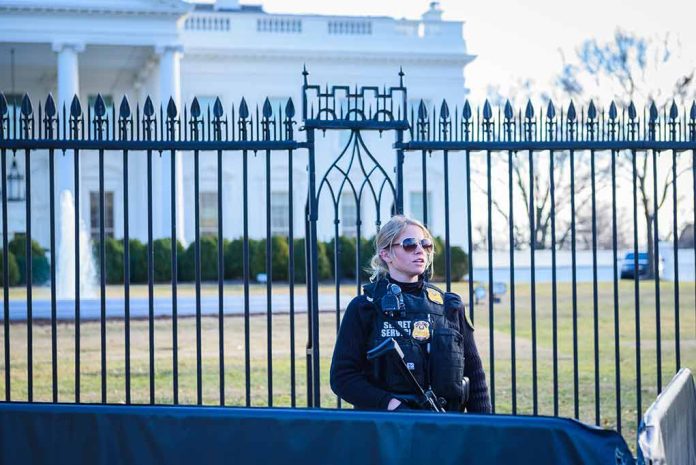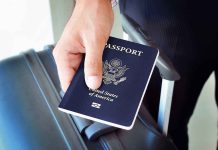
Senate approves a bill enhancing protection for presidential candidates, but what does it mean for future elections?
At a Glance
- The House passed a bipartisan bill 405-0 to boost security for presidential candidates, particularly former President Donald Trump.
- The bill mandates the Secret Service to use the same standards for protecting major presidential candidates as they do for presidents and vice presidents.
- The legislation follows an assassination attempt on Trump in July and a recent incident at his Florida golf course.
- Lawmakers are working to ensure the Secret Service has adequate resources amid increasing political violence.
- The Senate unanimously passed bipartisan legislation to boost Secret Service protection for major presidential candidates.
Senate Approves Enhanced Presidential Security Act
The Senate unanimously approved the Enhanced Presidential Security Act aimed at providing presidential and vice-presidential candidates the same level of protection as the sitting President. The bill, spearheaded by Rep. Mike Lawler (R-N.Y.) and supported by Sen. Rick Scott (R-Fla.), addresses recent security lapses evidenced by assassination attempts on former President Donald Trump.
The House had previously passed the bill 405-0, reflecting strong bipartisan support. The legislation ensures the Secret Service follows the same protective standards for major presidential candidates as it does for presidents and vice presidents. Trump’s July assassination attempt and a recent arrest of an armed man at Trump’s Florida golf course highlighted the need for improved candidate security. The Secret Service has already boosted Trump’s protection to the same level as Vice President Kamala Harris and President Joe Biden.
Senate passed legislation by unanimous consent to provide equal Secret Service protection to major presidential and vice presidential candidates as they do for the current president & vice president. House passed the bill 405-0 last week & it now heads to President Biden to sign. https://t.co/4vGt39CwoC pic.twitter.com/yFoCTzd40d
— Craig Caplan (@CraigCaplan) September 24, 2024
Funding and Resources
Lawmakers emphasized the importance of providing the Secret Service with adequate resources amid escalating political violence. Discussions are underway to determine if additional funds or a stopgap package are necessary to support the enhanced protective duties. Existing funds may be directed towards technology, partnerships with other agencies, and overtime pay for agents. Meanwhile, a bipartisan task force will hold its first hearing next week to investigate recent security failures.
“In America, elections are determined at the ballot box, not by an assassin’s bullet,” Lawler stated. “That these incidents were allowed to occur is a stain on our country.”
House Democratic Leader Hakeem Jeffries highlighted the need for maximal protection, stating, “We’ve got to get the Secret Service into a position where its protectees are shielded in the most maximum way possible.”
Bipartisan Cooperation and Future Steps
Senate passage of the Enhanced Presidential Security Act demonstrated significant bipartisan cooperation. Eleven Senate Republicans, including co-sponsor Tim Scott (R-S.C.), joined efforts in pushing this critical legislation. However, some Republicans, such as House Majority Leader Steve Scalise, argue that reallocating agents and overhauling the agency should take precedence over increased funding.
“Over the course of just 65 days, two deranged individuals have tried to kill President Donald Trump, and one was able to shoot him in the head,” Scott wrote during the bill’s introduction. https://www.yahoo.com/news/senate-unanimously-passes-bill-bolstering-214318220.html
Acting Secret Service Director Ronald Rowe affirmed that the agency has already increased Trump’s security to match that of Biden. The measure now awaits President Joe Biden’s approval, ensuring all major candidates receive necessary protection.





